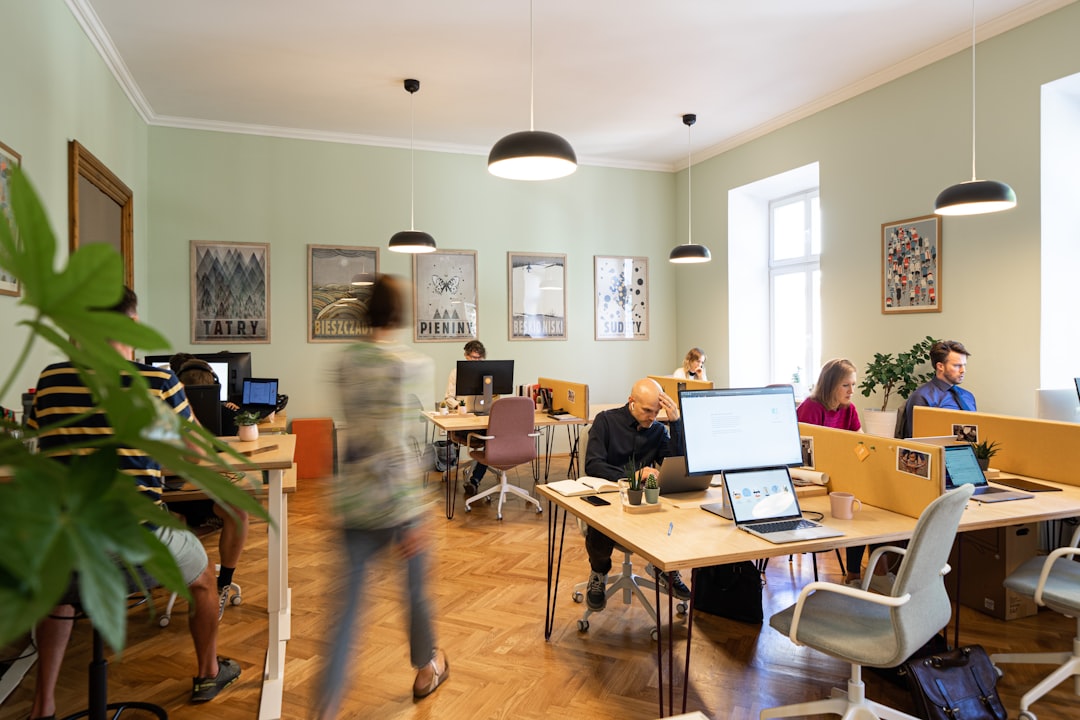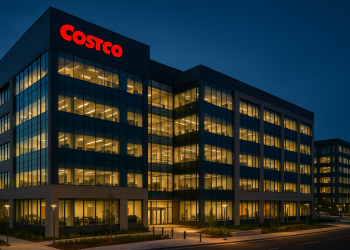No products in the cart.
The Future of Office Spaces: Navigating the Rental Revolution
As remote work reshapes our professional lives, major office rental services like WeWork and Regus are poised for significant changes. Explore the future of office spaces.
In the bustling heart of San Francisco, a new era of office rental services is taking root. The once-dominant giants, WeWork and Regus, are now navigating a landscape transformed by the pandemic and the rise of remote work. As professionals seek flexibility and adaptability in their work environments, the office rental market is poised for a significant shift.
For years, WeWork was synonymous with coworking culture, a beacon for startups and freelancers alike. But the pandemic forced a reckoning. Empty desks and silent conference rooms became the norm, prompting a radical rethink about what the future of workspaces should look like. Now, as the dust settles, the question remains: how will these giants adapt to the changing tides of office rentals?

The office rental services market is currently at a crossroads. According to recent reports, major players like WeWork, Regus (IWG), Knotel, and Industrious are reevaluating their strategies to align with the evolving needs of businesses and employees alike. The remote work revolution has led to a surge in demand for flexible office solutions, with companies looking to downsize their traditional office footprints while still providing collaborative spaces for their teams.
Consider the case of a tech startup in Austin, Texas, that transitioned from a permanent office to a hybrid model, utilizing WeWork’s services for its team meetings and brainstorming sessions. This shift not only reduced overhead costs but also allowed employees to work in a more relaxed, creative environment. Such stories are becoming increasingly common as businesses adjust their operational strategies to fit the remote work paradigm.
According to recent reports, major players like WeWork, Regus (IWG), Knotel, and Industrious are reevaluating their strategies to align with the evolving needs of businesses and employees alike.
As we look at the broader context, several factors are driving this transformation in the office rental market. For one, the rise of the gig economy and side hustles has created a new breed of worker who values flexibility over permanence. According to a recent study by the Freelancers Union, nearly 36% of the U.S. workforce is now engaged in freelance work, a trend that resonates strongly with the global 16-35 demographic.
Furthermore, the corporate culture is shifting. Companies are now prioritizing employee well-being and work-life balance, leading to a demand for environments that foster collaboration while offering the freedom to work from anywhere. Regus, for instance, has reported a significant uptick in inquiries for short-term office rentals, indicating that businesses are increasingly interested in flexible leasing options that can adapt to their changing needs.
But it’s not just about flexibility; innovation is also key. Companies like Knotel are pioneering the concept of customized office spaces, creating environments tailored specifically for individual businesses. This bespoke approach not only enhances productivity but also helps companies build their brand identity within their workspace.
However, the road ahead is not without its challenges. As these giants pivot to meet new demands, they face stiff competition from smaller, agile players who are also entering the coworking arena. Local co-working spaces are popping up in cities worldwide, offering unique atmospheres that resonate with community values and creativity. This trend poses a critical question for established companies: can they keep pace with the local, personalized touch that these smaller entities provide?
Moreover, the economic repercussions of the pandemic continue to loom large. A recent report from JLL indicates that vacancy rates in major cities remain high, suggesting that a significant portion of office space may remain underutilized for the foreseeable future. As the market grapples with these realities, the challenge for rental services will be to strike a balance between offering attractive spaces and remaining financially viable.
Companies like Knotel are pioneering the concept of customized office spaces, creating environments tailored specifically for individual businesses.
Looking toward the future, it’s clear that the office rental market is evolving. The demand for flexibility will likely remain a dominant theme as businesses continue to navigate the complexities of hybrid work models. Companies that can innovate and adapt their offerings will thrive in this new environment. Ultimately, the future of office rentals will hinge on understanding the nuanced needs of a workforce that is no longer confined to traditional office walls.
In this dynamic landscape, one thing is certain: the traditional notion of a fixed office space is fading away. Instead, we are witnessing the birth of a new work culture, one that embraces fluidity, creativity, and collaboration. As the giants of the office rental market recalibrate their strategies to align with these trends, they hold the keys to shaping the future of work itself.











